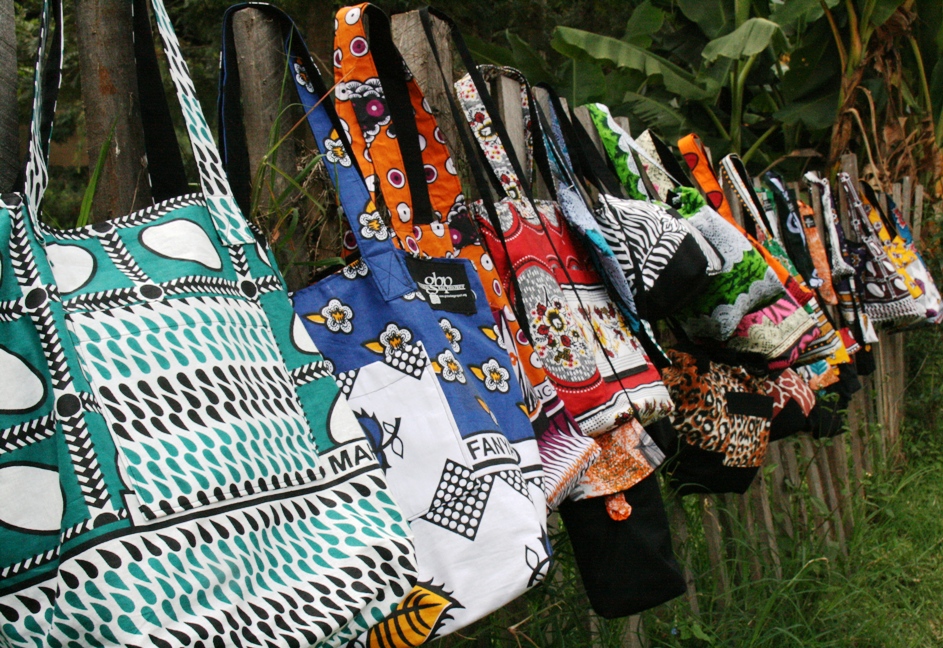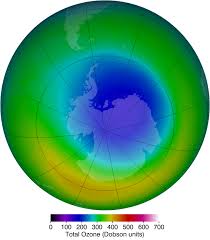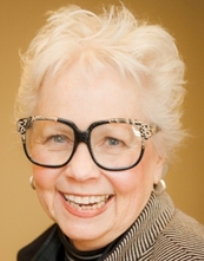Self-Discovery: Memoir-Writing Lessons
I have often found myself commenting, “I don’t understand how
people know who they are without being writers.” This is because much
of my writing draws on personal experience; I often work out on the
page the meaning of what has happened to me, what my relationship with
God is becoming and the nature of my personal flaws and strengths.
Frequently, more often than not, I discover sudden surprising
understandings, personal self-revelations I would not have achieved
without this lifetime of writing—some 25 books, countless broadcasts,
hundreds of blogs, and for the last 15 years, this Soulish Food e-newsletter.
In
the publishing field, this kind of writing is called the personal
essay, the memoir genre, or more recently, narrative non-fiction. This
genre is much, much more than the celebrity autobiography (often
“written with” a professional writer). It is the common, everyday
particular experience of ordinary people who discover and communicate
extraordinary meaning from the events of their personal lives. In
addition, the reader steps through the written pages into a universal
understanding: This joy, this
sorrow, this terror, this amazing achievement, this sweeping and grand
love is also what I have known. I, the reader, am connected with the
writer.
Memoir catches a moment and ponders its
meaning on the page. It can be a travel journal—as long as it turns
reflective, serious or hilarious. Memoir doesn’t attempt to capture the
grand sweep of a whole life, though memoirs can be book-length (they
can also be a few pages long, article length, or in a personal novella
format, i.e., “The Summer I Turned Ten”). All memoirs invite the reader to come alongside the writer.
In
brain science, this sudden empathy is called “attunement,” or another
term might be “contingent communication.” We cry, identify with, love
deeply and respond intensely to someone we have never met, but feel as
though we know, really know.
Sarah-Jane Murray, in her TED
Talk “Hardwired for Story,” explains how our brains light up with the
same emotions as the protagonist; indeed, our responsive neural
behavior mirrors the experience being told to us (or that we read).
They’re scared, so are we; they’re angry, so are we. They’re
victorious, so are we. She also notes that we’re 22 times more likely
to remember something when it’s a story.
Briefly, here are some of the books in the memoir format that it has been my joy to discover, to read and to study:
* Saint Augustine’s Confessions * Mary Karr’s The Liars Club * Malcolm X’s The Autobiography * Thomas Merton’s Seven-Storey Mountain * Frank McCourt’s Angela’s Ashes * M.F. Fisher’s The Art of Eating * Joan Didion’s Slouching Toward Bethlehem * Annie Dillard’s Pilgrim at Tinker Creek and Teaching a Stone to Talk * Lewis Thomas’ The Lives of a Cell: Notes of a Biology Watcher * Oliver Sacks’ The Man Who Mistook His Wife for a Hat * Peter Matthiesen’s The Snow Leopard * John Berger’s Ways of Seeing
For
the last five years, it has been my joy to offer six cycles of
teleconference writing classes. These classes meet twice a month and
extend over seven months, enough time for me to develop a
teaching/coaching methodology for various would-be memoirists with a
variety of goals and with a range of writing experience. As usual,
often the “coach” receives the most coaching. These friends (and we do
become friends despite the fact we come from different geographic
areas, have never met except over a teleconference line, and wouldn’t
recognize one another on the street) have given to me rare gifts of
learning.
These are some of the gifts I’ve received:
• I’ve
been pushed to learn much more about the personal essay that goes way
beyond what I, as one singular reader, could know in my solo journey.
Trying to stay ahead of their learning curve, I’ve read more books on
the genre than I knew existed.
• I’ve
been able to journey with friends (some old and some new) through
wondrous human dilemmas and delights (each incident reduced to 3-5
pages). I’ve laughed, been amazed, wept and caught my breath at the
agony and ecstasy of what people endure and overcome and use as healing
in the lives of others.
• These people, most of whom I
have never met, have put their confidence in me as a guide as they
wrestle to understand, to unknot and communicate their own life
dilemmas of my attention; this is an honor to me that I try to worthily
fulfill.
• Over each seven-month cycle, I experience
the extraordinary and rare experience of watching the writing mature in
all participants—even in those who do not aspire to publish but want
mostly to leave a record of their lives for progeny. After the last
teleconference call—we’ve been working together for at least five
months—I said to my husband, “Oh, it feels so good. Everyone is
progressing. What a joy to hear everyone becoming more confident in
their growing writing voice!”
• I
have been designing a mature learners’ curriculum, which I plan to
offer to the Lifelong Learning Departments in local community colleges.
So here’s the deal: In January I will offer two memoir-writing courses going forward for seven months to this Soulish Food list and to my “friends” of some 5000 folk on my Facebook page.
Opportunity 1: Teleconference Memoir Class
One will be a teleconference course
so that people from all over the States can participate. (Heads-up: We
had trouble during last year’s cycle plugging Canadians in remote
geographic areas into the teleconference system. If you want to join,
we’ll do a teleconference test to see if you are in a compatible zone.)
There
is room for eight people, time for me to coach two groups—four
participants per group, and we will continue through August 2017. I
must know your intentions by October 15
(before the holidays). At that time, a payment of $500 for the course
must be made or a payment plan defined. To register, email Heather
Ann Martinez, heatherm@mainstayministries.org. If you have further questions, contact me at karen@hungrysouls.org. Somehow, we find compatible meeting times and days after everyone has joined! This class will begin in January 2017.
Opportunity 2: Face-to-Face Memoir-Writing Class (November 2016 – July 2017)
The second class will be face-to-face
meetings for those in the West Chicago, IL, area who would like to work
on a memoir project they’ve had in mind, either outlined, or for which
they’ve written some pieces.
This group will meet twice a
month in my home. I will need a written description of your idea, or if
you’ve read a memoir by someone who has stimulated your concept. I’d
like to have an initial meeting in November, at which time you’ll make
a written covenant with me, then convene twice a month starting in
February. The fee for this will also be $500, to be paid in October.
Register your intentions with Heather Ann Martinez, heatherm@mainstayministries.org. If you have questions, contact me at karen@hungrysouls.org.
Life
being what it is, we will, of course, refund payments if unforeseen
contingencies prevent you from participating. Usually, there is a
waiting list, and we can advance someone else into the class to take a
vacated spot.
The goal of our work together is learning to think on the page. In his book To Show and To Tell: The Craft of Literary Nonfiction,
memoirist extraordinaire Phillip Lopate explains what he tells his
graduate students at Columbia University: “What I mean by thinking on
the page is something more quicksilver and spontaneous: to question all
that might have been transpiring inside and outside themselves at this
time, and to catch the hunches, doubts, and digressive associations
that dart through their brain.” He continues, “I want you to figure out
something on your own, some question to which you don’t already have
the answer when you start. Then you can truly engage the reader in the
adventure of following you, as you try to come up with deep unexpected
insights, without censoring.”
Karen Mains
NOTICES
Global Bag Project Christmas Donations
 Would
you (or your family, or your small group) consider making a Christmas
gift this year of $100 toward the women in the bag-making cooperative
in Nairobi, Kenya, who have been our partners in this micro-enterprise
venture? Some 30 gifts of this size will enable us to underwrite the
New Year capitalization of the purchasing and sewing cycles so that our
friends will have work and we will have stateside products to sell.
Due
to the use of volunteer hours, we attempt to return all margins from
bag sales to the seamstresses who work to support their families
through this bag-making cooperative. The Global Bag Project has its own
Kenyan board and directs its own enterprise. Our approach is to support
them in their efforts through bag parties, direct sales, the GBP Web
sites and an annual fundraising campaign to underwrite capitalization.
Donations to Mainstay Ministries and directed to the Global Bag Project are fully tax-deductible and will be receipted.
If
you’d like to arrange a holiday bag-party—a gift-buying two-hour
venture with a social enterprise goal—email Heather Ann Martinez
at heatherm@mainstayministries.org.
For Chicagoland-area parties, we can arrange for a Global Bag Project
“friend” to lead the party, or we can mail out a Party In A Box to
those who are at other points in the country.
Celebrate
Did any of you get the word that the ozone hole, discovered in 1974
over the atmospheric layer above Antarctica, is beginning to heal?
The
cause of the ozone hole in the gaseous shield that absorbs the bulk of
the sun’s harmful ultraviolet radiation, and that protects man, woman and
child, plants and animals from it, was caused by the accumulation
in the upper atmosphere of chlorofluorocarbons (CFCs), chemicals once
widely used broadly in everything from underarm deodorant and hairspray
to the cooling systems in air conditioners and refrigerators. The upper
atmosphere appeared to have a finite capacity for absorbing chlorine
atoms.

Despite
rigorous resistance from the chemical industry, an international treaty
known as the Montreal Protocol mounted a counter-resistance and led to
the gradual elimination of ozone-depleting gases. Usually opening every
year in August, the hole has been opening later each year, isn’t as deep as it
was, and has shrunk by 1.5 million square miles. Some scientists
predict it is on pace to be closed completely by mid-century.
Let
us cheer about real successes small
and large. Let us look into the sky on September nights and clap over
the fact that yes indeed, we can be good stewards of our environment.
Let us remember that when good people with good intentions band
together to do good, good is often accomplished.
Hurrah to the healing ozone hole! Hurrah for the Montreal Protocol! Hurrah!
Reminder!
The Soulish Food e-mails are
being
posted biweekly on the Hungry Souls Web
site. Newcomers can look that over and decide if they want to
register on the Web site to receive the biweekly newsletter. You might
want to recommend this to friends also. They can go to www.HungrySouls.org.
Hungry Souls Contact InformationADDRESS: 29W377 Hawthorne Lane
West Chicago, IL 60185
PHONE: 630-293-4500
EMAIL: karen@hungrysouls.org
|
|

Karen Mains
In brain science, this
sudden empathy is called “attunement,” or another term might be
“contingent communication.” We cry, identify with, love deeply and
respond intensely to someone we have never met, but feel as though we
know, really know.
BOOK CORNER
 When Breath Becomes Air
by Paul Kalanithi
One of the most touching memoirs I read this past year was Paul Kalanithi’s When Breath Becomes Air.
A neurosurgeon who graduated from Stanford University with a MA in
English literature and a BA in human biology, went on to earn a MPhil
in history and philosophy of science and medicine from the University
of Cambridge, then graduated cum laude from the Yale School of Medicine. Kalanithi's book is a memoir of his own death at too young an age, in his early thirties.
When Breath Becomes Air
literally takes your breath away. Kalanithi’s lifelong philosophical
question was: Given that all organisms die, what makes a virtuous and
meaningful life? Kalanithi died in March 2015, and his small book
instantly became a #1 New York Times Bestseller.
Atul Gawande, author of Being Mortal,
writes on the back-cover copy: “Rattling, heartbreaking, and ultimately
beautiful, the too-young Dr. Kalanithi’s memoir is proof that the dying
are the ones who have the most to teach us about life.”
On my part, a must-read. I too am considering the question of what makes a virtuous and meaningful life.
Buy From Amazon.com
|



